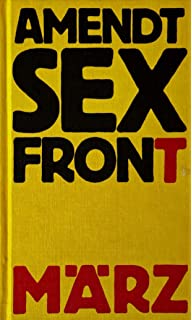Shivkumar Sharma was an Indian classical musician and santoor player best known outside of his country for the album Call of the Valley (1967).
Tag Archives: 1938
RIP Hermann Nitsch (1938 – 2022)
Hermann Nitsch was an Austrian artist who is known for his transgressive performance art.
His seven minute short “Maria-Conception-Action: Hermann Nitsch” (1969) illustrates how the past is a foreign country.
The performance is a combination of a sadomasochistic performance, artsploitation and carnography.
A typical scene from Herman Nitsch’s happenings featured cruelty, sexuality, blood and violence.
In the “Maria-Conception-Action: Hermann Nitsch” a young women is crucified and defiled with a disemboweled lamb carcass.
That film is not featured on YouTube but it can be faintly seen on footage of a concert by the band Concrete Flesh.
The closest I ever came to witnessing a spectacle like this is, is seeing Tier Mon (1988) by La Fura dels Baus in Antwerp when I was 23. And then there was Abattoir Fermé, the Belgian theater group whose aesthetics sometimes flirt somewhat with that of Nitsch.
RIP Lars Bloch (1938 – 2022)
Lars Bloch was a Danish actor and producer known for his appearances in such films as A Stranger in Town (1967), the first of a series of three “Man with No Name” copycat films.
RIP Sandy Nelson (1938 – 2022)
Sandy Nelson was an American drummer known for such compositions as “Let There Be Drums” (1961).
Incredible Bongo Band‘s oft sampled rendition of this instrumental was released in 1973.
RIP Janet Mead (1938 – 2022)
Janet Mead was an Australian nun and singer known for singing “The Lord’s Prayer” (1973).
The song made Mead the first Roman Catholic nun to have a hit record in the United States since Jeanine Deckers (“The Singing Nun”), hit No. 1 with “Dominique” in late 1963.
RIP Paddy Moloney (1938 – 2021)
Paddy Moloney was an Irish musician, best-known for his work with the The Chieftains.
He also arranged “Women of Ireland” for the film Barry Lyndon (1975).
RIP Piera Degli Esposti (1938 – 2021)
Piera Degli Esposti was an Italian actress known for performances in films such as Il Divo (2008).
The film The Story of Piera (1983), directed by Marco Ferreri, was based on a book of hers, but she did not star in that film.
RIP Frederic Rzewski (1938 – 2021)
Frederic Rzewski was an American composer, best known for The People United Will Never Be Defeated! (1975).
That composition is a set of 36 variations on the Chilean song “¡El pueblo unido jamás será vencido!”.
RIP Jörg Schröder (1938 – 2020)

Jörg Schröder was a German writer and publisher.
He founded countercultural publishing house März Verlag in 1969 and published books such as Sexfront (1970), instrumental to the sexual revolution in Germany.
RIP Diana ‘Emma Peel’ Rigg (1938 – 2020)
Diana Rigg (1938 – 2020) was an English actress perhaps best-known for playing Emma Peel in the British TV series The Avengers (1965–1968).
Here, Emma Peel, the rather amusing final scene from the “Something Nasty in the Nursery” (1967) episode of The Avengers.
What do you see Madame Peel?
I see you and I on the scene.
Something lurking in the background?
Yes, I see you attacked by two large…
What?
Things.
I dispose of them?
I do dispose of them?
No. I do.
